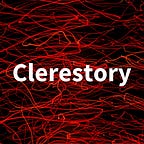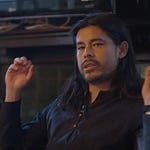I’m Bryan Kam. I endeavour daily to make philosophy accessible and relevant. To that end I write this newsletter and host a podcast called Clerestory. I’m also writing a book called Neither/Nor and I’m a founding member of Liminal Learning. In London, I host a book club, a writing group, and other events. My work looks at how abstract concepts relate to embodied life, and how to use this understanding to transform experience.
In this podcast, I discuss the draft of the academic paper on Neither/Nor which I wrote about here, with my coauthor, developmental psychologist Dr. Isabela Granic.
This paper has been a lot of work, and we discussed the writing right after finishing a major draft. In the paper and in our discussion, we emphasise the six principles of Neither/Nor. The article currently has an editor at Nature assessing the submission.
The Six Principles of Neither/Nor
Two Modes of Knowing: The first principle identifies the two distinct ways we learn about life — through concepts and experiences. These modes are complementary, and we consider them trainable skills. Neither should be privileged over the other.
Commitment to Oscillation: Rather than selecting a definitive standpoint, we advocate for a dynamic process of oscillating between the conceptual and experiential skills, allowing us to adapt to the strengths of each mode.
Process Over Static Entities: Our understanding should prioritise processes rather than fixed entities, recognising the ever-changing nature of knowledge as it evolves through interaction with the living world. Categories are useful, but we can’t allow them to become too static.
Trial and Error Learning: Engage with the world through continuous experimentation, using trial and error to iteratively refine our understanding and approach — this is at the heart, for us, of adaptive learning.
Social Construction of Knowledge: A recognition that all knowledge is inherently social. Our reason for wanting to know is always social. Knowledge itself is always culturally embedded. This is empowering, and allows to contextual flexibility, not relativism — some ways are more effective than others.
Historicity: Understanding that knowledge and its acquisition grow from historical context gives us a holistic understanding of how changes occur in personal, cultural, and scientific pursuits.
Would you like to read it?
If so, you can request a copy of the pre-print here.
Thanks for reading. If you enjoyed the conversation, please share it with someone! Please also consider supporting me on Patreon or Ko-Fi.
Best,
Bryan











